What We Owe Each Other
Interview by Richard Marshall.
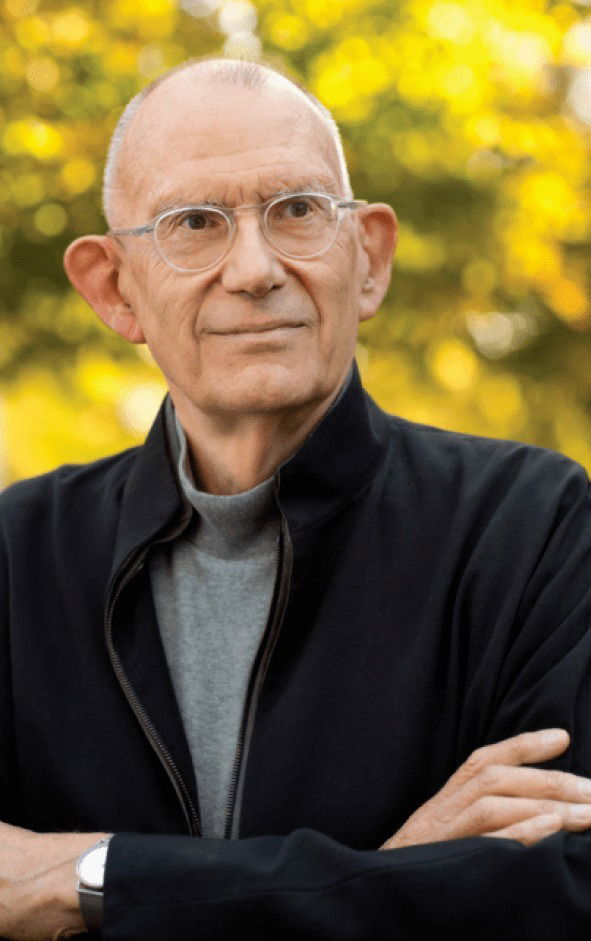
'I agree that science is the best way of understanding the natural world, and therefore that we have reason to believe what the best science tells us about the objects in that world and the relations between them. But this does not mean that the natural world is the only thing we can have true beliefs about. The status of material objects such as the desk I am writing on as things that are “real” is a matter of their having physical properties, such as weight, solidity, and spatio-temporal location. In order to be real, such things need not have, in addition to these properties, some further kind of metaphysical existence.'
'I am not a Kantian either about moral permissibility or about practical reasoning more generally. I do not believe that Kant’s Categorical Imperative is a requirement that any rational agent must recognize. Nor do I think that the authority of practical reasons flows from what we will, or can will. The various forms of the Categorical Imperative are naturally read as stating some very appealing moral ideas. But these ideas are distorted when they are embedded within Kant’s metaphysics of the person and of action...'
T.M. Scanlon is Alford Professor of Natural Religion, Moral Philosophy, and Civil Polity. He received his B.A. from Princeton in 1962 and his Ph.D. from Harvard. In between, he studied for a year at Oxford as a Fulbright Fellow. He taught at Princeton from 1966 before coming to Harvard in 1984. He is the awardee of the Lauener Prize for an Outstanding Oeuvre in Analytical Philosophy for 2016. Thomas Scanlon's dissertation and some of his first papers were in mathematical logic, but the bulk of his teaching and writing has been in moral and political philosophy. He has published papers on freedom of expression, the nature of rights, conceptions of welfare, and theories of justice, as well as on foundational questions in moral theory. Here he talks about recent developments in metaethics, Realism and Cognitivism, why he thinks reasons are fundamental, desire theories and Mark Schroeder and Bernard Williams, knowing irreducible normative truths, how Realism can maintain reason as an action guiding, practical force, contractualism, freedom of expression, toleration, consequentialism and instrumentalism, the doctrine of double effect (which says bad results can be morally OK if they are only side effects of a good action) and Kantianism, normative naturalism and Parfit. This one rock and rolls ...
3:AM:What made you become a philosopher?
Thomas Scanlon:In my junior year at Princeton I took a seminar on the philosophy of mathematics with Paul Benacerraf. It was a terrific course, based on Paul’s dissertation on logicism, which he had recently finished. This led to my writing a senior thesis under Paul’s direction on mathematical Platonism, the question of whether sets and numbers exist. I was vehemently of the opinion that they do exist. (Isn’t it surprising that questions of ontology seem to give rise to so much passion?) During that year I found that I loved thinking about philosophical questions so much that I did not want to give it up. Chapter 2 of my 2014 book on reasons was in part a working out (a generalization and refinement) of ideas from that senior thesis, fifty years later.
3:AM:You’ve been a leading figure in metaethics. Before examining your ideas, could you sketch out what metaethics is and what has happened to this area of investigation since Mackie’s book on Ethics back in the 1970s.
TMS:The metaethics I was first introduced to, in the early 1960s, was mainly concerned with the question of motivation: of how it could be that accepting the judgment that an action would be morally wrong involved being motivated no to do it. Given the spirit of the time, this was mainly addressed as a question about the meaning of moral terms, such as ‘ought’ and ‘good.’ The dominant views were forms of non-cognitivism, which held that moral judgments do not make factual claims but express feelings of a certain sort (Stevenson) or the acceptance of imperatives (Hare.) Mackie’s book added, to the charge that an interpretation of moral judgments as stating facts could not explain moral motivation, the ontological charge that facts about objective rightness and wrongness would be “queer” entities, “unlike anything else in the universe,” and the epistemological charge that we would have no way of coming to know such facts. He objected to moral facts because of their claim to objectivity. He seems to have had no problem with facts about reasons for action that depend on the agent’s desires.
In this period, the main alternatives to non-cognitivism were forms of moral realism that took moral truths to state facts about the natural world, such as the views developed by Richard Boyd and Nicholas Sturgeon at Cornell and by Peter Railton. Sophisticated versions of non-cognitivism, such as Simon Blackburn’s quasi-realism and Allan Gibbard’s related views, came a bit later. These views incorporated a shift in the discussion from the earlier focus simply on moral judgments to the broader question reasons for action more generally. This shift was evident in the title of Christine Korsgaard’s influential book, The Sources of Normativity.
3:AM:You are a Realist and a Cognitivist about ethics aren’t you? In saying this, what and who are you setting yourself up against?
THS:I am a cognitivist about normative judgments in general, not just moral judgments, in that I take these judgments to be capable of truth or falsity in a straightforward sense. This sets me against many forms of non-cognitivism, and also against Kantian views that take normative judgments to be grounded in the will.
3:AM:You argue that truths about reasons are fundamental. What do you mean by this claim and why doesn’t this commit you to some sort of normative metaphysical fact that would escape our best scientist and therefore be at best dubious?
TMS:I take facts about reasons to be fundamental in two ways. First, I believe that facts about reasons are not reducible to or analyzable in terms of facts of other kind, such as facts about the natural world. Second, I believe that reasons are the fundamental elements of the normative domain, and other normative notions, such as goodness and moral right and wrong can be explained in terms of reasons. I am less firmly committed to the latter view, which is a purely normative thesis, than to the former. The former view is controversial for the reason you cite, but I believe that reasons for thinking it to be in conflict with science rest on a mistake. I agree that science is the best way of understanding the natural world, and therefore that we have reason to believe what the best science tells us about the objects in that world and the relations between them. But this does not mean that the natural world is the only thing we can have true beliefs about. The status of material objects such as the desk I am writing on as things that are “real” is a matter of their having physical properties, such as weight, solidity, and spatio-temporal location. In order to be real, such things need not have, in addition to these properties, some further kind of metaphysical existence.
Numbers and sets are not parts of the natural world, and facts about them are not facts about that world. They are mathematical facts, about, say the mathematical relations that hold between numbers and between sets. What these facts are is a purely mathematical matter, not dependent on the existence of numbers, sets and facts about them in some metaphysical sense that goes beyond the literal mathematical claims involved. If physical objects do not require a further kind of metaphysical existence beyond the physical, why should mathematical objects and facts require some further kind of existence beyond their obvious mathematical properties? In the same vein, whether certain natural facts would, if they were to hold, be a reason for me to behave in a certain way, is a purely normative matter. No further “dubious” claim about metaphysical existence is involved.
Argument about the ontological status of mathematical and normative truths seems often to take the following form. Critics insist that in order for perfectly ordinary claims about numbers or reasons to be true they must be claims about facts that have some special metaphysical status. They then, quite reasonably, to say that these claims, so interpreted, involve a lot of hot air, and should be rejected. But they then go on, unfairly, to say that those who object to the hot air having been put in in the first place are “deflationists.”
3:AM: Why don’t you think a desire theory of reasons can explain everything that needs to be explained? Is Bernard Williams wrong in this?
TMS: Desire theories come in two forms. Reductive desire theories, such as Mark Schroeder’s view, take facts about reasons for action simply to be facts about what would satisfy agents’ desires. What I call normative desire theories are based on very general normative claims that agents have reason to do what will satisfy their desires (or at least certain desires.) Reductive desire theories deprive judgments about reasons of their normative force. Normative desire theories preserve the normativity of judgments about reasons, since they are based on a general normative claim. For that reason, they do not escape the ontological and epistemological objections that normative facts are supposed to be subject to. I would of course not reject them for that reason, since I do not think that those objections are substantial. But normative desire theories entail conclusions about what reasons we have reasons that seem to me false. I find myself in the course of a day having desires for many things that I in fact have no reason to seek or bring about. Attempts to avoid such implications by trimming back the class of desires that generate reasons seem to me to rely covertly on judgments about what I have reason to want that are independent of desires. There is also the problem that desire theories do not describe accurately the relation between reasons and desires from an agent’s own point of view. (This is my main reason for rejecting desire theories.) To desire something is to see some fact about it as a reason to seek it. The fact that I desire something thus always presents, but leaves open, the question for me of whether this purported reason to seek it is actually a good reason.

For many years, before I had thought very carefully about the question, I assumed that many, perhaps even most, reasons for action depend on an agent’s desires, even though there are some reasons, such as moral reasons and perhaps some prudential reasons, that do not depend on desires. But when I thought more seriously about the question, I was surprised to be led to the conclusion that desires never provide reasons for action, except perhaps is certain trivial “tie-breaking” cases. When I considered carefully cases in which it seemed that a person had a reason because he or she had a certain desire it always turned out that the reason was being provided by some underlying fact about the object of that desire, such as that it would be pleasant. I argued for this view in Chapter 1 of my book, What We Owe to Each Other. I was rather shocked when I first realized that this was what I believed, but in the twenty years since then I have become more and more convinced that it is correct.
The idea that reasons for action depend on desires is more plausible, and even correct, when taken as an answer to the explanatory question about what an agent’s reason was for acting a certain way. This is a psychological question, about what an agent saw as a reason, not a normative question about what reason he or she actually had. Bernard Williams’ view is complex and not easy to interpret, but I believe that one element of it was an attempt to forge a tighter link than I would between these explanatory and normative questions. He was also, I believe, drawn toward the idea that in order for it to be true that some consideration is a reason for a person it has to be also true that it would be irrational for the person to refuse to recognize this. The idea of such a link between reasons and rationality is widely shared—common to desire theories and some Kantian views, I believe—but it seems to me to be mistaken.
3:AM: How can we know irreducible normative truths?
TMS: What is the problem supposed to be? It seems to me as clear as anything that I know some such truths, such as that the fact that I would die if I jumped out the window next to me is a reason for me not to do that. (Even if a normative desire theory is correct, this is, at base, a normative truth.) If normative truths, in order to state facts, would have to be about some kind of metaphysical objects, there might be a question of how we could “be in touch” with these things. But, as I said in response to an earlier question, this is a false and misleading picture. We can have knowledge of mathematical facts because we can engage in the right kind of reasoning about mathematical questions. Similarly, we can arrive at valid conclusions about reasons by thinking carefully about them. Relevant doubts about the conclusions we reach are first-order doubts about whether we are, normatively, correct. Normative judgments are much more open to such doubts than mathematical judgments. We have well-worked out accounts of various parts of mathematics, which give us justified confidence in our particular beliefs about those subjects and, more generally, confidence that there is a fact of the matter about at least many questions that are as yet undecided. The problem with normative judgments is that we lack such an overall account of the subject matter of reasons for action. This is a first-order, normative problem, not a metaphysical or epistemological one.
3:AM: Another challenge a realist theory like yours faces is to show how it can maintain reasons’ ‘action guiding’, practical force. Can you sketch out the problem here for us and say how do you fix the problem?
TMS: The problem was this. It seems that the fact that a person accepted a moral judgment, say that a certain action was morally required, can explain the fact that the person acted in that way. But, following Hume it was assumed that the acceptance of a “factual” or “descriptive” judgment could not explain action in this way. The “explanation” in question had two dimensions. First, accepting a judgment was assumed to make it rational for a person to act a certain way (and perhaps even irrational not to do so.) Second, the acceptance of such a judgment was thought to be connected with the person’s being caused to act in this way. Non-cognitivist views were supposed to avoid this problem. Hare, for example, held that the acceptance of an imperative is the only kind of judgment that is “logically” linked with action. I suppose he also assumed that we are physically constituted in a way that explains our normally, if not invariably, behaving rationally. My view is an exact parallel with this. Rational agents are creatures that are capable of making judgments about what they have reason to do. And insofar as they are not irrational, they act in accord with the judgments about reasons that they accept. So even if judgments about reasons are the kind of things that can be true or false, the acceptance of such judgments has “practical force” in just the way that Hare thought the acceptance of imperatives did.
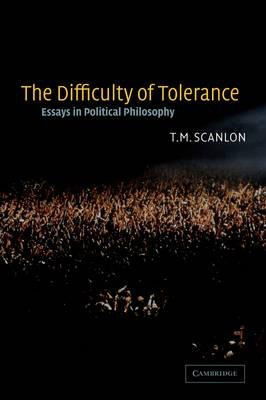
3:AM: You are a contracturalist as well as a realist aren’t you? Was it through finding that you believed that morality depends on reasons that require no further moral facts, reasons that no reasonable people could reject that led you to this position, or were you a realist first and that led to you discovering that for it to work a realist position followed?
TMS: I was a realist (that is to say a cognitivist) about normative judgments before I became a contractualist about morality. I was, as I have said, unsure about the degree to which reasons depend on desires, but as I have also said even a normative desire theory would be a form of normative realism. Thinking about contractualism, however, forced me to formulate a general view about reasons, which turned out, as I said, to involve rejection of the idea that desires generate reasons.
3:AM: In thinking about freedom of expression and toleration you had to think about the notion of rights. Have you a settled view of what rights are now, and what are the main features of such a view. Are you still a consequentialist? And why don’t you call yourself an instrumentalist anymore with respect to rights?
TMS: The view of rights that I formulated back in 1975 held that rights are constraints on the discretion of agents to act (or not act) that are justified by the fact that they are needed in order to protect certain important interests and that they do this at a tolerable cost in terms of other interests.
I thought of this as at least akin to a kind of consequentialism since I thought of the interests in question in terms of states of affairs that it is good to have obtain. I thus described my view of rights as “instrumentalist” because I saw rights as justified by the fact that their being observed promotes these states of affairs.
I put things this way because I saw some version of consequentialism as the only alternative to direct intuitionism about rights, which seemed to me unacceptable, because we need some way of justifying rights and of thinking systematically about what they require. But contractualism provides such an alternative, and once I started seeing things this way the original formulation of my view of rights came to look like a special case of the contractualist account of right and wrong: To say that a right is a limit on discretion to act that is necessary to protect a certain interest is just to say that there would be a reason to reject a principle permitting people to act in the way the right forbids (namely a reason that a person has who has the “important interest” in question. And to say that the right protects this interest in a way that is feasible is just to say that no one has good reason to object to being constrained in the way the right involves, so the rejection just mentioned is reasonable.
So my current view is that rights are no more “instrumental” than any other facts about right and wrong. The question remaining is whether there is anything distinctive about rights, as contrasted with other facts about right and wrong. This is connected with the current discussion about “directed duties.” I am inclined to think that there is nothing distinctive about rights (i.e., that there is no important class of directed duties that is narrower than the realm of “what we owe to each other” which contractualist moral theory describes.) But I am not sure about this at the moment.
3:AM: You’ve rejected the doctrine of double effect, which is a doctrine which seems to be something in the news at the moment via discussions of various trolley thought-experiments. Can you say why you reject the doctrine?
TMS: For many years, roughly from 1969 until 1999, I was a semi-unwilling believer in the doctrine of double effect. On the one hand, I felt pulled to accept it because I did not see any other way to explain what seemed to be obvious facts about right and wrong in various cases. But I could not see any general explanation of why an agent’s intentions should have this kind of right-making and wrong-making significance. I also felt challenged by objections to the doctrine of double effect raised by Judith Thomson and Jonathan Bennett, among others. So I was greatly relieved in 1999 when I came to the conclusion that the cases I had been concerned about could all be explained in other ways, which did not depend on the intentions of the agents. The appeal of the doctrine of double effect, I concluded, arises from a failure to distinguish between two kinds of judgments, judgments about what makes an action wrong, and judgments about what is faulty in the thinking that leads an agent to think that an action is justified. Judgments of the latter kind must make reference to what the agent intended (what he or she took to be good reasons for acting in a certain way) whereas judgments of the former kind need not do so.
I did not conclude that facts about agents’ intentions (about what they see as reasons for acting as they do) are never relevant to the rightness or wrongness of what they do, although I have sometimes been interpreted as holding this. My main conclusion was just that an agent’s intentions are not relevant to the permissibility of actions in the particular way that the doctrine of double effect maintains. I think there are also other cases in which an agent’s intention may appear to be relevant but is not. For example, people sometimes say, “Doing X in order to bring about Y would be wrong,” which appears to be about the agent’s intentions in doing X, when the relevant truth about permissibility is really, “The fact that doing X would bring about Y does not justify doing X,” which is not about intentions at all. (This is just the distinction I mentioned in the previous paragraph.) There are, however, cases in which the wrongness of an action does depend on the agent’s intentions. For example, intentions are relevant to understanding the wrongfulness of coercive threats.
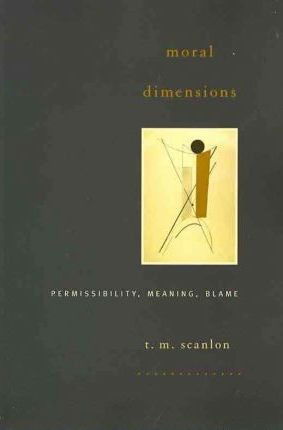
3:AM: Does your understanding of moral permissibility end up making you a Kantian alongside a contractualist and a consequentialist (of some stripe), and does that mean you are sympathetic to Parfit’s arguments about metaethics in ‘On What Matters’?
TMS: As I explain in my contribution to volume two of Parfit’s On What Matters, I am not a Kantian either about moral permissibility or about practical reasoning more generally. I do not believe that Kant’s Categorical Imperative is a requirement that any rational agent must recognize. Nor do I think that the authority of practical reasons flows from what we will, or can will. The various forms of the Categorical Imperative are naturally read as stating some very appealing moral ideas. But these ideas are distorted when they are embedded within Kant’s metaphysics of the person and of action, including his distinction between autonomy and heteronomy. I am in more agreement with the position that Parfit calls Kantian, although for reasons given in my contribution to that volume I do not think it is very Kantian. I am not a consequentialist although, like any sensible person, I think that the consequences of actions do matter to their permissibility. In my view they matter because permissibility depends on the reasons individuals have to object to principles permitting certain actions and those reasons depend on how they would be affected by the consequences of these actions. As far as metaethics is concerned, Parfit and I are in quite full agreement.
3:AM: Is the ‘naturalism’ that Parfit discusses in the second volume a threat to your position? Is there anything that this ‘naturalist’ argues that gives you pause?
TMS :I do not see any reason to accept what Parfit calls “metaphysical naturalism” or what he calls “normative naturalism.”
3:AM:And finally, are there five books you would recommend to the readers here at 3AM wishing to go further into your philosophical world?
TMS:

Thomas Nagel, Mortal Questions
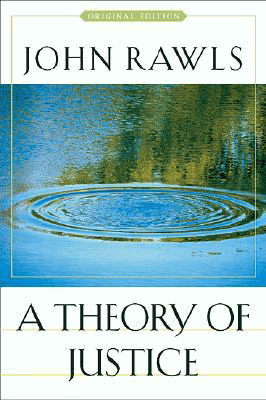
John Rawls, A Theory of Justice
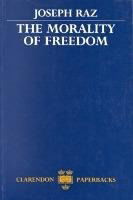
Joseph Raz, The Morality of Freedom
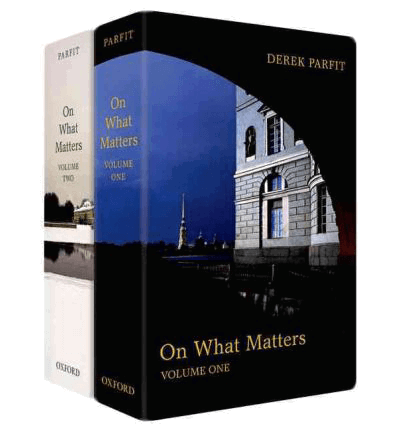
Derek Parfit, On What Matters

Joseph Fishkin, Bottlenecks
ABOUT THE INTERVIEWER
Richard Marshallis still biding his time.
Buy his book hereto keep him biding!